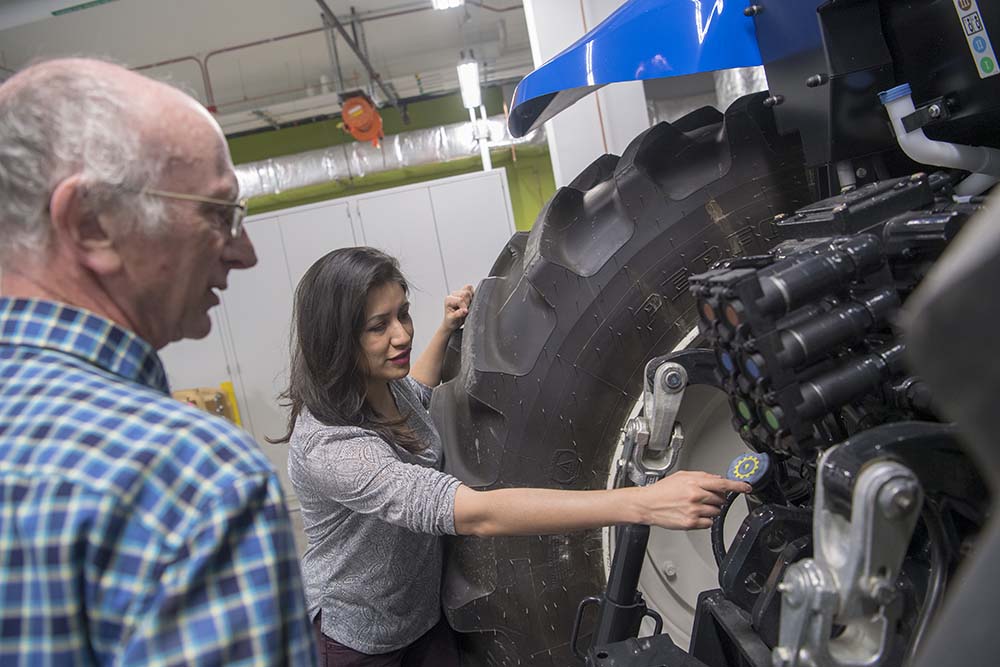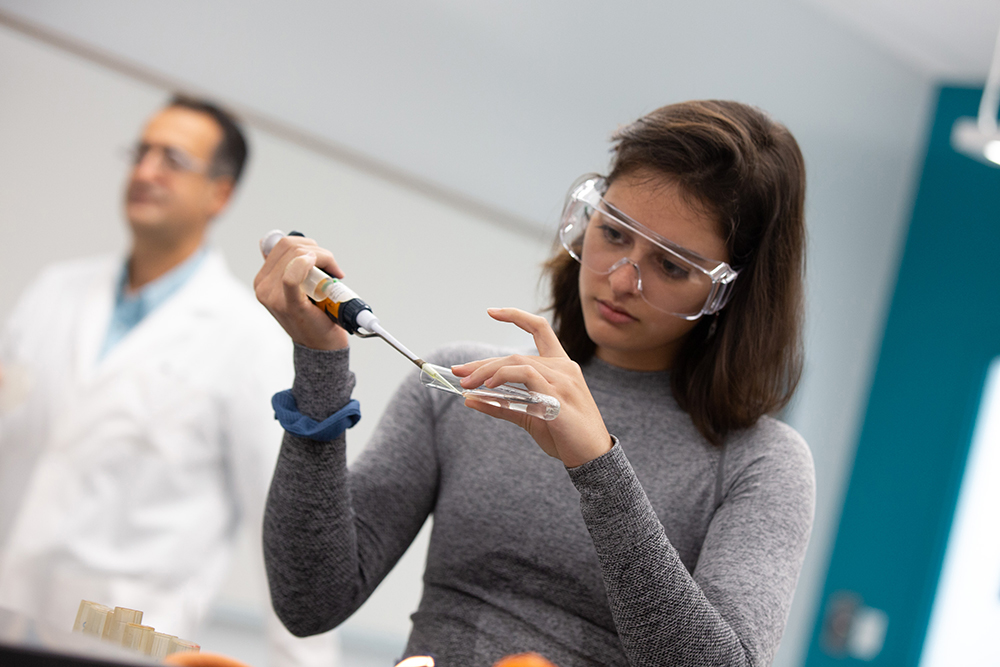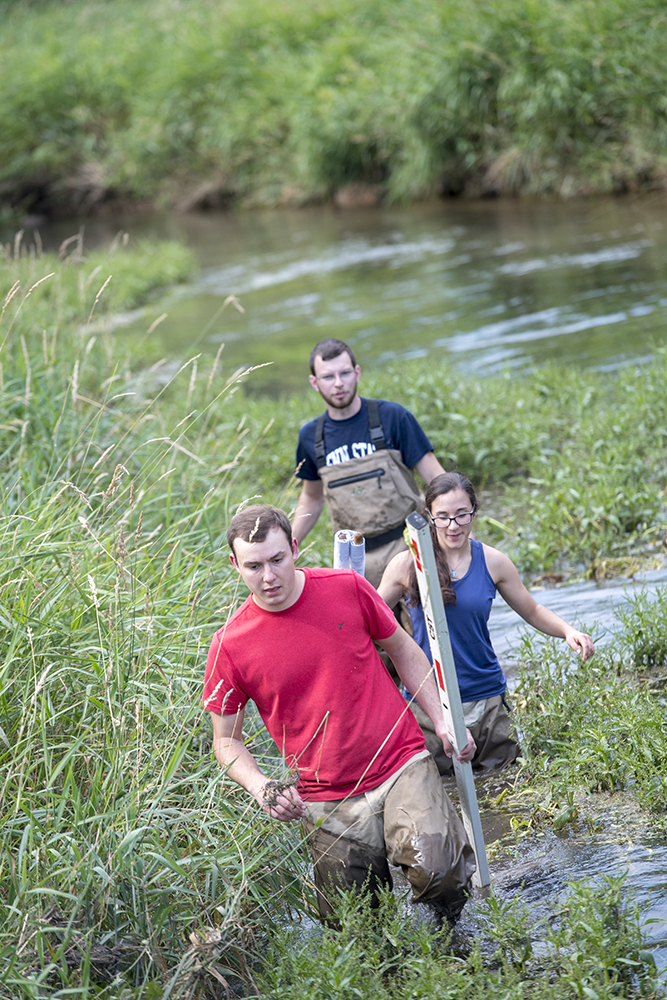Biological Engineering Major
Practical, solution-oriented engineering.
A hands-on approach to an engineering education with real-world challenges and sustainability always at the forefront. Grads take leadership roles in manufacturing organizations, engineering firms, nonprofits, and government agencies, and continue on to success in graduate school.
Penn State Engineering. Penn State Ag. Enjoy the best of both worlds.
This is a Penn State engineering degree. You'll benefit from the rigor, depth, prestige, and enormous resources of the College of Engineering and the College of Agricultural Sciences.
Our focus is creating solutions to sustainability challenges in food production, biological processing, and natural resource protection. World-class faculty move from behind the podium and challenge you to roll up your sleeves and harness engineering principles to make our food, fiber, and water systems and products more efficient, sustainable, and healthy, and less wasteful.
Biological Engineering is the right major if you’re:
- interested in applying engineering skills and analyses to biological systems
- looking to advance technology to improve production
- passionate about stewarding the environment
See the University Bulletin for details on program requirements, suggested academic plan, and more.
View the educational objectives and student outcomes for the Biological Engineering program.
The Biological Engineering major is administered through the College of Engineering. Learn about applying to become an engineering student.
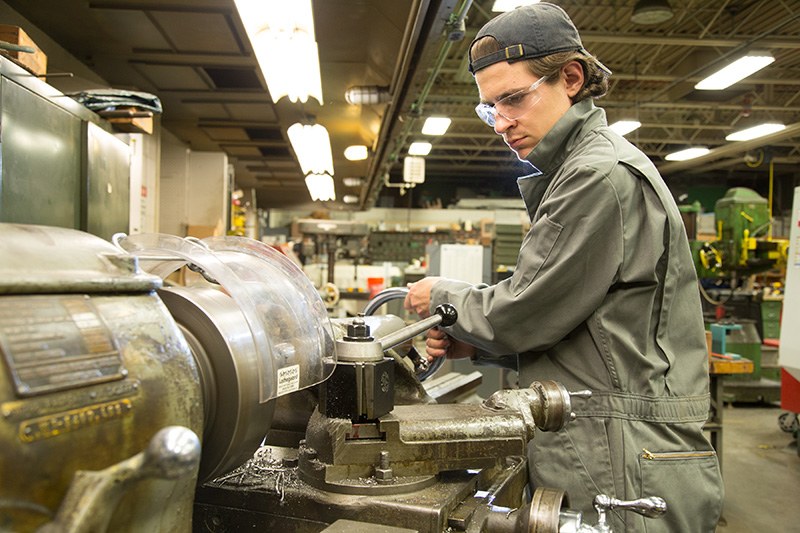
Ag Journeys
“Engineering is a puzzle. Penn State teaches you to put the pieces together.”
–Landis Crawford
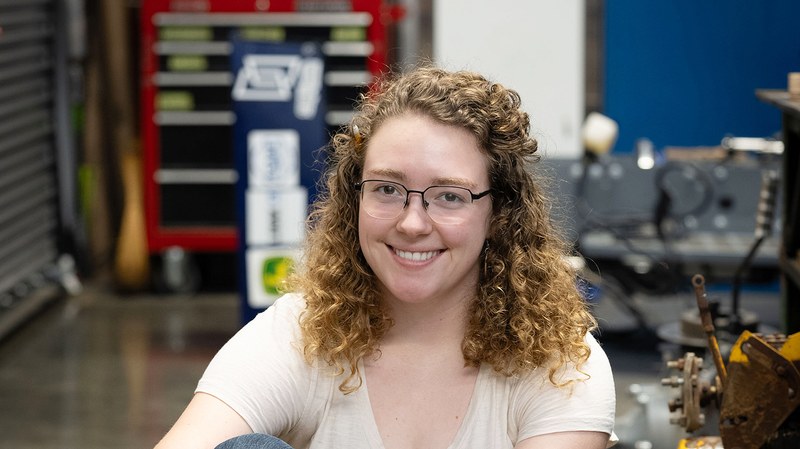
Out of the classroom and into the world.
At Penn State, there are more opportunities to learn, meet professionals working in your field, network, and have more fun than you can imagine.
The same goes with our internship opportunities. Companies compete to bring Penn Staters onboard for the summer, and many students return to campus with a summer of practical experience and often a job offer waiting in the wings. There are research opportunities, study abroad opportunities, and more to gain experience and academic credit.
Craft your experience.
Related clubs and teams
- American Society of Agricultural and Biological Engineers (Penn State Branch)
- Penn State Pullers
- Society for Industrial Biotechnology
- Society of Women Engineers
- See all clubs and teams
Recent internships
- Associate engineer
- Drivetrain test engineer
- Hydraulic systems engineer
- Production engineer
- Scientific and technical engineering intern
- Stream restoration intern
Study abroad
- Semester abroad at Monash University in Melbourne, Australia
- Bioproducts tour and workshop, Germany
- Semester abroad at University College Dublin, Ireland
- Summer travel to Africa with Humanitarian Engineering and Social Entrepreneurship (HESE) program—projects such as transforming invasive species into sustainable fuel source (Kenya) and affordable greenhouses (Sierra Leone, Zambia)
- Spring-break travel to Kenya for baobab-processing project as part of Engineering Leadership Development minor
- Summer research intern at the University of Costa Rica

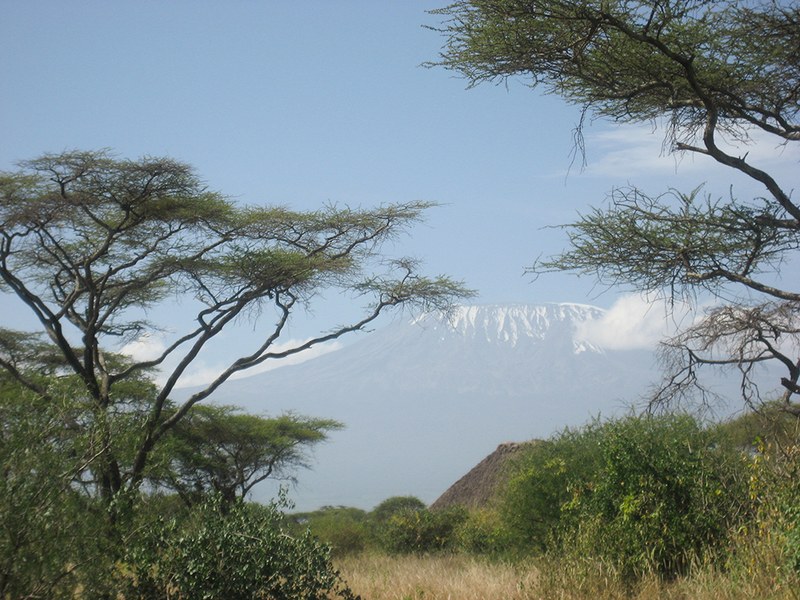

A practical, workforce-ready degree—and a college experience you’ll love.
Penn State Biological Engineering grads are on the job, in the boardroom, out in the field, at the drafting table, in front of the classroom, all over the world, right now.
Our alumni out in the world
- Bio-based product development companies
- Environmental engineering consulting firms
- Food processing companies
- Off-road machinery development companies
- Materials handling companies
- Soil and water protection agencies
Biological Engineering Career Options
Harness the power of a truly unique education at one of the world’s most prestigious universities. Here are just a few career examples in the biological engineering field:
Food process engineer
A food process engineer designs equipment and creates processes for the commercial food industry.
What will I do?
- Design food processing, handling, and packaging equipment
- Ensure all projects are managed properly and delivered within cost and performance success criteria
- Assess the need for new processes or equipment, and observe equipment to see if it is working properly
Natural resource engineer
Natural resource engineers use the principles of engineering, soil science, hydrology, biology, and chemistry to develop solutions to environmental problems.
What will I do?
- Design and troubleshoot stormwater and erosion control facilities
- Develop strategies to address environmental issues such as water pollution
Agricultural engineer
Agricultural engineers solve problems concerning power systems, machinery, structures and facilities, and the storage and processing of agricultural products.
What will I do?
- Design equipment, systems, or structures
- Oversee construction and production operations
- Plan and work together with clients, contractors, consultants, and other engineers to ensure effective and desirable outcomes
Biological Engineering Students in the News
March 26, 2025
Schreyer Scholar sows passion for agricultural leadership
Landis Crawford, a Schreyer Scholar and agricultural engineering major, has developed a passion for agricultural leadership from Penn State Behrend to University Park.
Read More
November 27, 2024
Sustainable Communities Collaborative partnership with Borough flourishes
The Sustainable Communities Collaborative (SCC) at Penn State Sustainability has coordinated a record number of partnership projects with the Borough of State College this semester. The SCC pairs Penn State classes from across disciplines with communities on partner-identified and defined community projects.
Read More
November 8, 2023
Penn State senior selected as Marshall Scholarship finalist
Penn State senior Vancie Peacock recently was selected as finalist for a 2024 Marshall Scholarship. Peacock, of Memphis, Tennessee, is a biological engineering major in the College of Agricultural Sciences and a Schreyer Scholar.
Read More
October 4, 2023
Penn State partners with Monash University for Australia water quality research
A group of Penn State students recently traveled to Australia as part of a partnership between Penn State and Monash University to conduct research aimed at better understanding sources of decreased water quality in watersheds, in addition to finding possible solutions.
Read More

